SPEAKERS
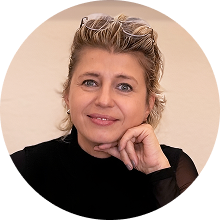
After finishing her MA in Political Sciences and European Studies at Sorbonne University in Paris, Aurora Ailincai joined the Council of Europe in 2003 within the Directorate of Education, where she was responsible for activities related to inclusive intercultural education. From 2010 to 2020, she was Head of the Strategic Partnerships Unit and Deputy of the Roma and Travellers Division of the Council of Europe. During this time Aurora co-ordinated several pan-European programmes focusing on local governance and active citizenship; promotion of inclusive education; teaching Roma and Traveller history and the Remembrance of the Roma Holocaust. Since April 2021, she has been the Executive Director of the Observatory on History Teaching in Europe. Aurora has a PhD in Educational Sciences from the University of Strasbourg and her PhD research focused on school mediation and related challenges in view of existing inequalities and structural barriers in the education system. In 2020 she successfully completed the Oxford Women’s Leadership Development Programme at Saïd Business School, University of Oxford. Since 2009, Aurora has been a visiting lecturer in several universities – such as the University of the West Indies and Guyana and the University of French Polynesia – where she has been teaching programme design in multi-ethnic and multicultural contexts, as well as the creation of networks and partnerships.
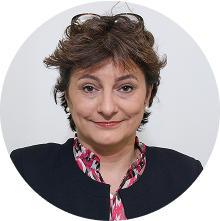
Joëlle Alazard is a senior history teacher (professeure de chaire supérieure) at the Lycée Louis-le-Grand, President of the Association of History and Geography Teachers (APHG) since February 2023, and holds a doctorate in medieval history. She is the scientific curator of the exhibition “Illustrating the History of France: The Epic of School Textbooks from the 18th Century to the Present” (National Archives, January 2025 – May 2026). She is also a member of CHIMEN.
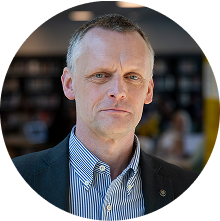
Niklas Ammert is a Professor of History with a special focus on Educational Science (History Didactics) at Linnaeus University in Sweden. In the 1990s he worked as a Secondary School teacher in History and Social Sciences. Since 2001 Ammert is a teacher and researcher at Linnaeus University. In 2008 and 2009 he worked as an expert and advisor for The Swedish National Agency for Education. Currently he serves as the Pro Vice-Chancellor at Linnaeus University.
Ammert’s research mainly focuses on history teaching, history education and the uses of history – how individuals and groups encounter, interpret and communicate history at school, in higher education, in politics and in other cultural and societal contexts. He is specialised in intersections of societal and moral values and history. Ammert is a member of several advisory boards, expert groups and committees. Currently he is PI for the international research network Democracy in the past, the present, and looking to the future: An international network focusing on historical, moral, and democratic consciousness in history education, research and policy. The project is funded by the Swedish Research Council.
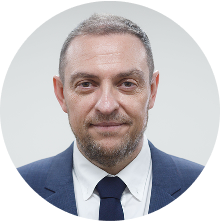
Josep Anton Bardina Pau, born in 1974 in Andorra la Vella, has held several institutional positions:
2001–2005: Secretary of State for Education
2005–2007: Secretary of State for Youth and Housing
2007–2009: Secretary of State for Social Welfare, Family, and Housing
2011–2019: Member of Parliament (Conseller General), Vice-President of the Legislative Committees on Education, Culture, and Sports, member of the Legislative Committee on Social Affairs, and member of the Andorran delegation to the Council of Europe.
Mr. Bardina holds a Bachelor’s degree (Bac+3) in Educational Sciences, a Master’s-level degree (Bac+4) in Child Psychology, and a University Diploma in Child Psychology Intervention, all awarded by Universitat Ramon Llull (Barcelona, Spain). He has also worked as a teacher and educational psychologist in several schools, and served as Human Resources Director in a private company in Andorra.
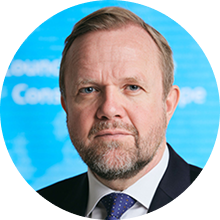
Bjørn Berge serves as the Council of Europe’s Deputy Secretary General since 1 March 2021. As the Deputy Secretary General, he is involved in a number of key areas of the work of the Organisation, including advising and overseeing the implementation of the Secretary General’s reform agenda, in line with the decisions and priorities of the Committee of Ministers. His priorities include shaping the Programme and Budget, while ensuring that the Organisation’s activities have maximum impact in advancing democracy, human rights, and the rule of law. He also oversees the Council of Europe’s staff policy, as well as other key areas of the work of the Organisation.
Before taking up his post, Bjørn Berge was for a period of four years Director General and Secretary to the Committee of Ministers of the Council of Europe. Between 2009-2017, he served as Director of the Private Office of the Secretary General and the Deputy Secretary General, helping to prepare, co-ordinate and implement a number of comprehensive reforms of the Organisation. Bjørn Berge has over thirty years of
international professional experience. As a former Norwegian diplomat, he served as International Adviser to the Prime Minister and as Deputy Director of the Foreign Minister’s Cabinet responsible for all matters related to Parliament. He also served as speechwriter to three Norwegian Foreign Ministers. Berge has published several books on a range of issues relating to speech writing and speeches, as well as articles on the Council of Europe’s mandate and work. He was a Fulbright Scholar and holds a MA in International Relations from the Paul Nitze School of Advanced International Studies (SAIS), Johns Hopkins University, Washington D.C., USA.
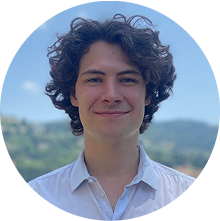
Jonah J. Berger is a doctoral researcher in history at the European University Institute (EUI) in Florence. His thesis focuses on the European Commission’s external economic policies after the Cold War. His work combines historical analysis with political sociology through the study of personnel in the Commission’s Directorates-General I and IA between 1988 and 1995. In his work, he demonstrates and questions the geopolitical role of the European Union (EU) in the post-Cold War world order.
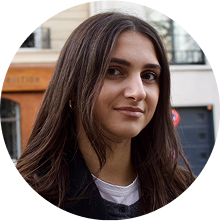
Albana is an MA student in the History of Political Thought and Intellectual History at Queen Mary University of London and University College London. Her research focuses on conservatism and democratic theory, with her thesis examining Willmoore Kendall and the foundations of American populist conservatism. She holds a Bachelor’s degree in Law from the University of Donja Gorica.
Alongside her academic work, Albana has founded Students For Liberty in Montenegro, part of an international network promoting individual liberty and free markets, and currently serves as Senior Coordinator for the organisation in Montenegro and the United Kingdom.
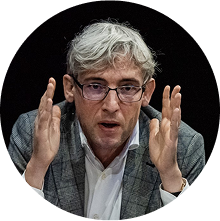
Francesco Boldizzoni (b. 1979) is Professor of Economic History at the University of Palermo. As a result of his interdisciplinary involvement with the social sciences, he also held professorships in political science (at the University of Helsinki and the Norwegian University of Science and Technology) and visiting appointments in both fields at several other institutions including the University of Cambridge, Dartmouth College, the Ecole des Hautes Etudes en Sciences Sociales in Paris and the Max Planck Institute for the Study of Societies in Cologne. Throughout his career as a historian, he has characteristically combined the empirical study of economic processes and ideas – focusing in particular on the history of capitalism – with a more theoretical interest in methodology and historiography. His main publications include Means and Ends: The Idea of Capital in the West, 1500-1970 (Macmillan 2008); The Poverty of Clio: Resurrecting Economic History (Princeton University Press, 2011); Foretelling the End of Capitalism: Intellectual Misadventures since Karl Marx (Harvard University Press, 2020); and the Routledge Handbook of Global Economic History, co-edited with Pat Hudson (2016).
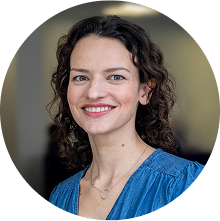
Lise Butler is Senior Lecturer in Modern History at City St. George’s, University of London. She received her doctorate from University College Oxford, and has previously held a lectureship at Pembroke College Oxford and fellowships at Churchill College Cambridge and the Remarque Institute at New York University. She is a historian of modern Britain, focused on the relationship between ideas and politics within the British left since 1945. She is the author of Michael Young, Social Science, and the British Left, 1945-70, and is co-editing a forthcoming handbook of Labour Party history. She is also the primary investigator for the British Academy project ‘Getting it Wrong: The Limits to Prediction’, and a co-editor of Renewal: A Journal of Social Democracy. Lise is a fellow of the Royal Historical Society, and a University of London representative to the Institute of Historical Research, the UK’s national centre for history.
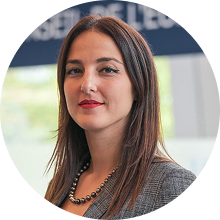
Francesca Camilleri Vettiger is Malta’s Ambassador and Permanent Representative to the Council of Europe. She is currently the President of the Committee of Ministers’ Deputies during Malta’s Presidency and chairs the Executive Committee of the NorthSouth Centre since June 2023. Her diplomatic career spans key roles including Deputy Permanent Representative to the Council of Europe, Senior Policy Officer at Malta’s Permanent Representation to the UN and other international organisations in Geneva, and Coordinator for International Human Rights matters in Valletta. A human rights lawyer by training, Francesca holds a Doctorate in Law from the University of Malta, and Master’s degrees in Public International Law from Utrecht University, and in Global Health Policy from the University of London. Her work is defined by a strong commitment to multilateral diplomacy, international law, and global governance.
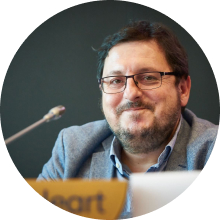
Professor of History at Maynooth University, Ireland. He has previously worked as Lecturer in Modern European History at the University of Leicester, Lecturer in European Studies at the Europa Universität Flensburg, Senior Research Associate at the European Centre for Minority Issues, and Teaching Fellow at University College London. He has held Research Fellowships at the Vienna Wiesenthal Institute for Holocaust Studies and the Imre Kértesz Kolleg Jena. A Romanian national, he is currently residing in Flensburg, Germany. He is a member of the Barvalipe Academy of the European Roma Institute for Arts and Culture (ERIAC) and Co-Convenor of the BASEES Study Group for Minority History. He is co-editor of the book series ‘A Modern History of Politics and Violence’ at Bloomsbury. Raul has served as Vice-chair of the OHTE Scientific Advisory Council since its establishment in June 2021 until 2024, and as SAC Chair ad interim until June 2025.
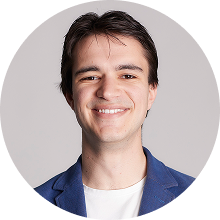
Marco Cokić is a PhD candidate in Economic History at the London School of Economics and Political Science (LSE). His doctoral research examines the role of foreign trade in shaping the macroeconomic development of Eastern Europe during the Cold War, with a particular emphasis on the interplay between trade, innovation, and structural transformation within its broader political economy context.
He was trained as both an economist and an economic historian at the University of Oxford, LSE, and University College London (UCL). His research interests include international trade, industrialisation strategies, and the political economy of economic development, especially in comparative and historical perspective. Beyond his thesis, Marco is broadly interested in how external economic relations influence long-term
growth trajectories and patterns of structural change.
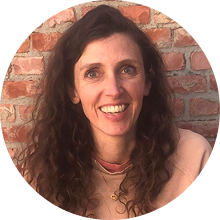
Marjolein Delvou has been working as a Programme Curator for the Evens Foundation since 2009. Trained in history and international relations, she designs and leads projects at the intersection of education and society, focusing on conflict, critical thinking and belonging. She co-curates the Evens Education Prize, identifying initiatives that support democratic values through learning and participation.
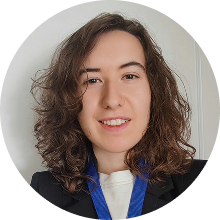
Upon graduating from the Lycée Franco-Hellénique (Athens), where she was first introduced to cultural diversity and to the complexity of the contemporary world through an active participation and later organisation of Model UN conferences, she decided to follow a path in History studies at the University of Lyon (France), where she consecutively completed a bachelor’s and master’s degree. The passion and teachings transmitted by her professors, combined to the personal belief that History and its responsible teaching can be essential levers for the construction of a better world, led her to undertake a PhD in Contemporary History in October 2024. Her doctoral research mainly focuses on
issues of transnational religious and social history, though the lens of lesser-known individual and collective human trajectories which unfolded across the globe throughout the 20th century. It is closely linked to her teaching activity, in which she explores issues related to colonialism and inter-cultural contacts. This path has allowed her to discover the value of inter-cultural dialogue and openness to diversity, as well as the importance of a responsible, ethical and interdisciplinary practice of History.

Serena Gandogonon has been a student at the Institute of Political Studies of Strasbourg (Sciences Po Strasbourg) since 2022, where she is currently pursuing a Master’s degree in International and Global Studies. She recently returned from an academic exchange year in Canada, which allowed her to approach history and political life from an extra-European perspective.
Since 2023, she has been involved with the Ligue de l’Enseignement in Strasbourg, where she supports primary school pupils in their learning and is committed to promoting equitable access to education. She is particularly interested in issues related to the teaching of history and the transmission of memories of the crises that marked the 20th century, convinced that historical knowledge is an essential tool for understanding contemporary challenges.
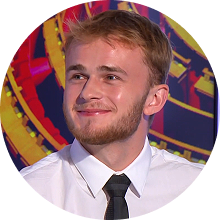
After a semester abroad in Denmark and an internship at the European School of Brussels 1, in September Vladimir enrolled in the Master’s programme in International and Global Studies at Sciences Po Strasbourg. Passionate about contemporary history and international relations, he is also deeply committed to environmental causes, a field in which he has been active for several years, both through associations and as an elected member of his school’s Board of Directors. As a member of the Arctic Ecology Research Group, he has particular interest in this region, where he has taken part in nearly thirty scientific missions. Seeking to combine his various interests, he plans to write his Master’s thesis on the militarisation of the Russian Arctic. Through his academic and professional experiences, Vladimir is convinced that the teaching of history and historical research are more necessary than ever to understand our world, preserve democracy, and envision a more peaceful future.

Matjaž Gruden is Director for Democracy at the Council of Europe, which includes Council of Europe activities and programmes in the area of education, including education for democratic citizenship, youth cooperation, civil society, media freedom, culture and cultural heritage.
Matjaž Gruden previously served as Director of Policy Planning, Deputy Director of the Private Office of the Secretary General, political adviser and speechwriter for the Secretary General and President of the Parliamentary Assembly of the Council of Europe. Prior to his career at the Council of Europe, he was a diplomat at the Slovenian Ministry of Foreign Affairs, posted in Brussels. He holds a law degree from the Law Faculty of the University of Ljubljana, as well as a post-graduate degree in EU law from the College of Europe in Bruges, Belgium.
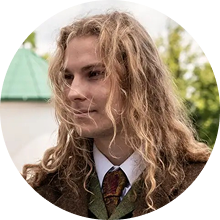
Andrii Karpenko holds a Master’s degree in History from Taras Shevchenko National University of Kyiv, where his research focused on cross-cultural interactions between Eastern and Western religions in South and Central Asia during the Hellenistic period. He is among the organisers of the Ukrainian NGO “Night in University”, which offers free theatrical tours designed to bring history closer to the wider public and to highlight key historical processes that shaped Ukrainian statehood.
He currently serves as Deputy Head of the Department of International Cooperation at the National Preserve “Kyiv-Pechersk lavra”, contributing to the safeguarding of UNESCO World Heritage in Ukraine.
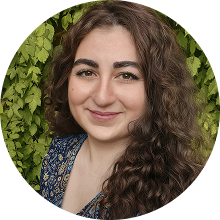
Eugenie Khatschatrian is Project Manager and Operations Coordinator at EuroClio. She is Project Manager of In Europe Schools and Sharing European Histories and has a particular interest in education for democracy and post-conflict reconciliation in the postSoviet space. Previously, Eugenie worked at the International Institute for Social History and the Eurasia Partnership Foundation, as well as other civil society organisations, research institutes and think tanks in the fields of social history, human rights and democracy in Europe and the South Caucasus.
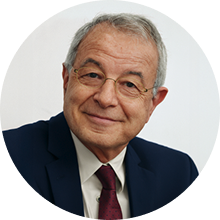
Alain Lamassoure is the Founding President of the Observatory on History Teaching in Europe and served as Chair of the Governing Board from 18 February 2021 to 27 February 2025. He previously served as a Minister Delegate for the Budget, Minister Delegate for European Affairs and as a Member of the European Parliament for France. After a career as a senior civil servant in several ministries and in the General Secretariat of the Presidency of the French Republic, Alain Lamassoure held numerous political mandates at the local, regional, national and European levels. He ended his political activities in 2019 to devote his time to teaching European Public Finance at Sciences Po Paris.

Graduated sociology and social-cultural anthropology at the Faculty of Philosophy of the Belgrade University under the mentorship of the famous Praxis group professors in the ‘60s and ‘70s. She was part of the Yugoslav dissident movement from the late sixties. Between 1991 and 1995 co-chaired the international Helsinki Citizens’ Assembly, founded in Prague in 1990, as a broad civic coalition from all the OSCE member
countries. From 1991 to 2003 she was the CEO of the Fund for an Open Society (Soros Foundation) in Yugoslavia (later Serbia). The Fund was the main donor and partner of independent media and emerging civil society in the ‘90s. Chaired the Task Force of the Bratislava Process from its inception in July 1999 (established with the support of East West Institute and the Slovak MFA) to reinforce the democratic opposition of Serbia. Since its initiation in 2003 the Foundation BFPE for a Responsible Society works on democratic and sustainable development of Serbia and the Western Balkans. She is board member of the Roma Foundation for Europe and the Roma Education Fund, as well as the Jefferson Institute, Washington D.C., and member of the European Council on Foreign Relations. Has been board member of many reputable international and local organisations, and laureate of numerous awards including the Council of Europe’s Pro Merit Medal, the Star of Italian Solidarity, the French Legion of Honor and the Order of Merit of the President of Federal Republic of Germany.

Ann-Laure Liéval is Professeure agrégée of History and Geography, teaching in the European English section at the Lycée Fénelon and CPGE ECG (Classe préparatoire École de Commerce) in Lille (Lycée Gaston Berger). She graduated from Artois University (Arras, France) with a Master in Ancient Greek History, and passed the Agrégation externe d’Histoire in 2003 with Lille University (France). She also taught in Master MEEF2 at the University of Lille to future teachers, after having been a member of the jury of the external CAPES of History-Geography, and worked as a lecturer at Sciences Po Lille (Undergraduate college 1st year) for 5 years. She is a teacher trainer and is involved in several Erasmus + projects, all dealing with the teaching of contested and sensitive topics in History (Learning to disagree, Parallel Histories, Monumental challenges). Member of the APHG (Association des Professeurs d’Histoire-Géographie) Europe workshop, she is currently a Board member of EuroClio, a non-profit NGO and an international network of 84 associations of history teachers and trainers, which collaborates with the OHTE.
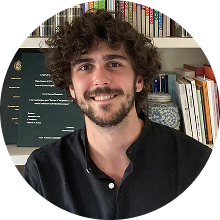
Pietro Massaini is a PhD student in Political Studies at La Sapienza University of Rome and at the École Doctorale des sciences juridiques of the University of Strasbourg, under joint supervision. His doctoral thesis examines the political and institutional dynamics of European integration and international cooperation in the early Cold War through the analysis of the relations between the Council of Europe and the United Nations. His research is also supported by the Vinci 2025 programme of the Université FrancoItalienne. Pietro Massaini has been trained as a historian of institutions and in European studies at the Universities of Florence, Pisa, and then in Rome and Strasbourg. His academic interests include the history of European integration and the history of international relations.
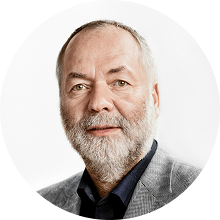
Markus Meckel grew up in GDR, the communist part of Germany, 1952. His father was in the Protestant church responsible for ecumenical contacts. After some difficulties at the official school he finalised his education just at institutions run by the church. So he studied Theology and Philosophy and started in this time with his activities in the democratic opposition. From 1980 he served as a Pastor/Reverend in a congregation in Mecklenburg, in the North of GDR. From 1988 he became director of an Ecumenical Centre for Education and Communication in Magdeburg and was member of the “Ecumenical Assembly for Justice, Peace and Preservation of the Creation” (1988/1989) in GDR and the European Assembly in Basel (May 1989). In 1989 Markus Meckel together with a friend initiated in the underground the Socialdemocratic Party in GDR. He became the vicechair and played an important role in the Peaceful Revolution in the GDR, took part at the Round Table and became in March 1990 Member of the free elected Parliament and Foreign Minister. In this position he negotiated the German Unification in the Two-plus-Four-Talks. After the German Unification he was Member of the Bundestag 1990 – 2009. He initiated the EnqueteCommission in the Bundestag dealing with the communist past (1992 – 1998) and the foundation of the Federal Foundation dealing with communist GDR and the Process of Unification (1998). He is Chairman of the Council of this Foundation (www.stiftung-aufarbeitung.de). 20 years ago Markus Meckel was part of the efforts of foundation the “European Network Remembrance and Solidarity” (www.enrs.eu) 2013 – 2016 Markus Meckel was President of the German War Grave Commission.
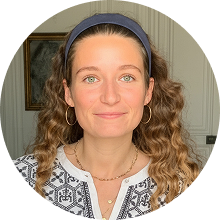
Anne de Montlaur is a second-year master’s student in Public Policy at the University Paris-Panthéon-Assas, she previously earned a master’s in English and American history at the École normale supérieure Paris-Saclay, where she wrote a thesis on the teaching of history in divided societies with a focus on Northern Ireland. She is particularly interested in the relationship between history and citizenship.

Yascha Mounk is a Professor of the Practice of International Affairs at Johns Hopkins University, the Founder of Persuasion, and the host of “The Good Fight” podcast. His latest book is The Identity Trap: A Story of Ideas and Power In Our Time. He writes a weekly column for his over 100,000 subscribers at www.yaschamounk.substack.com.
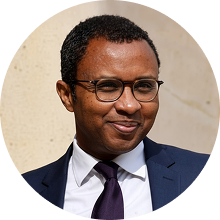
Pap Ndiaye has been Ambassador and Permanent Representative of France to the Council of Europe since 1 August 2023. He is a historian and academic, and previously held the posts of French Minister of National Education and Youth as well as Director General of the Public Establishment of the Palais de la Porte Dorée. Since 2013, he has also been a university professor at Sciences Po Paris. Pap Ndiaye is a highly renowned author of numerous works and articles on the comparative history of minorities (United States and France). He has been a visiting professor at numerous foreign universities and has given lectures all over the world. He is a Knight of the Legion of Honour and of the National Order of Merit as well as Commander of the Order of Academic Palms.
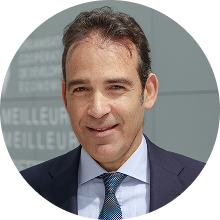
George Pagoulatos is the Ambassador of Greece to the OECD, Chair of the OECD Friends of South East Europe Group. Professor of European Politics and Economy at the Athens University of Economics and Business (AUEB) (on leave) and Visiting Professor at the College of Europe in Bruges. Pagoulatos has served as Director General of the Hellenic Foundation for European and Foreign Policy (ELIAMEP) (2019-23), advisor on
European affairs to the President of the Hellenic Republic (2020-23), and senior advisor to the PM and director of strategy at the PM Office under Greece’s two non-political prime ministers (2011-12). He is Council member of the European Council of Foreign Relations (ECFR) and was a member of the Governing Board of the Brussels-based European Policy Centre (EPC) (2015-20), the High Council of the European University Institute (EUI) in Florence (2010-13), and President of ECSA-Greece (2013-14). Author of several books and many articles, he has been a regular columnist in the Sunday edition of the main Greek centrist newspaper Kathimerini (2007-2023). Pagoulatos holds a Law degree from the University of Athens, M.Sc. and D.Phil. in Politics from the University of Oxford, where he was a Rhodes scholar. He was a delegate for Greece in the Conference on the Future of Europe (2021-22).
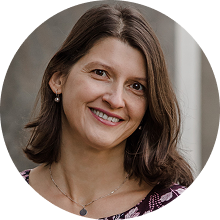
Assistant Professor at the Chair for East-European History at the University of Basel, Switzerland, Olena Palko is a historian of Ukraine and modern Eastern Europe. Educated at Kyiv Taras Shevchenko National University, Ukraine, she holds a PhD in History from the University of East Anglia (UK). She has previously worked at Birkbeck College, University of London, and has held Research Fellowships at the Vienna Institute for
Human Sciences, Humboldt University (Berlin), the German Historical Institute in Warsaw, and the Polish Institute for Advanced Studies. Olena Palko is a member of the Advisory Board of the Ukrainian Research in Switzerland (URIS). She is the author of Making Ukraine Soviet. Literature and Cultural Politics under Lenin and Stalin (Bloomsbury Academic, 2020), and a co-editor of Making Ukraine: Negotiating, Contesting, and Drawing Borders in Twentieth Century (Montreal, 2022), and Ukraine’s Many Faces. Land, People, and Culture Revisited (Bielefeld, 2023). She is a coconvener of the Study Group for Minority History.
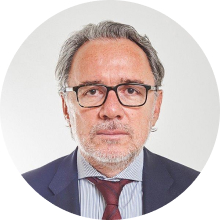
Villano Qiriazi is the Head of the Education Department of the Organisation since February 2022. He graduated in philology (French language and literature) from the University of Tirana in 1988. He joined the Council of Europe in 1996 and gained a rich experience in the development of Council of Europe policies and instruments related to quality education, democratic citizenship and human rights, digital citizenship education, fraud prevention in education, etc. Since 2012, he has been responsible for the secretariat of the Intergovernmental Committee for Cooperation in Education and the Council of Europe Standing Conference of Ministers of Education. He also served for three years as a special advisor to the Director General of the DGII. Throughout these years, he was responsible for the design of several official documents of the Committee of Ministers, the coordination of various publications and the establishment of European networks in the fields of digital citizenship education and ethics, transparency and integrity in higher education.
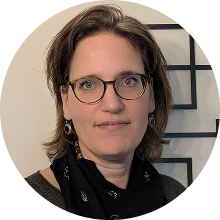
Intrigued by the sweeping social and political changes in Eastern Europe that unfolded during her high school years, Eva-Clarita Pettai began her academic journey in Moscow in 1990. She went on to study East European area studies and history in Berlin and Riga, eventually earning a PhD in Political Science from the Free University of Berlin with a dissertation on the politics of history in Latvia’s democratisation. After a brief stint as a project manager for the EUSTORY network in Hamburg, she spent over a decade researching and teaching at the University of Tartu in Estonia. In 2017, she returned to her native Germany to serve as a senior researcher at the Imre Kertész Kolleg at the University of Jena. Her academic work has consistently explored the intersections of History, memory, law, and justice—and the political dynamics these themes generate within democracies and European relations. In 2015, she co-authored Transitional and Retrospective Justéice in the Baltic States (Cambridge UP) and has published extensively on historical commissions, memory laws, and memory conflicts in the Baltic region and Central Europe. In 2023, she transitioned out of academia to become Director of Studies at the European Academy Schleswig-Holstein near Flensburg, where
she now focuses on civic and historical education of a general public, with an emphasis on European politics and societies.
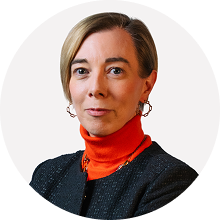
Aliette Quint is President of HENSOLDT Nexeya France, a position she has held since May 2023, where she leads the company’s strategy, operations and growth. She has over 20 years of experience in business development, strategy, and governmental affairs across the energy, chemical, transport and defence electronics sectors. Before joining HENSOLDT in 2019, she worked in Brussels as Managing Partner of Arcturus Group and later held several senior positions at Air Liquide, contributing to major industrial partnerships such as the Hydrogen Council. She holds an EMBA from ESSEC and Mannheim University and advanced degrees in European law, politics and political science, and speaks French, English, German and Italian.
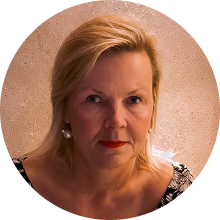
Over 35 years of professional experience in several intergovernmental sectors of the Council of Europe, involving standard-setting, monitoring and cooperation, as well as in the Parliamentary Assembly. She has notably worked in the field of legal cooperation, judicial reform, efficiency of justice, minority rights, gender equality and children’s rights, as well as sport. During her career she provided political advice to the Council of Europe leadership (Director of SG Private Office), led intergovernmental cooperation, developed and implemented multi-disciplinary and multi-annual strategies, as well as constructed thematic cooperation platforms with other international organisations. Presently Director
General of Democracy and Human Dignity, her areas of responsibility include children’s rights, trafficking in human beings, gender equality, violence against women, addressing intolerance and discrimination, freedom of expression, media, civil society and youth participation, education, culture and cultural heritage. Finnish nationality. Studied international relations (law, political science, economics) at McGill University (Canada).
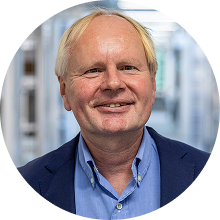
Steffen Sammler studied history at the universities of Leipzig, Rouen and at the European University Institute in Florence. He obtained his PhD in Modern History from Leipzig University and his habilitation in modern and contemporary history and history education from the Technical University of Braunschweig. After having taught at the universities of Leipzig, Lyon 2 and EMLYON Business School, he is currently a senior researcher at the Georg-Eckert-Institut (Leibniz Institute for Educational Media). There, he heads the European Forum for Reconciliation and Cooperation in History and Social Sciences Education (EFREC) while also teaching in the Department of History at the Technical University of Braunschweig.
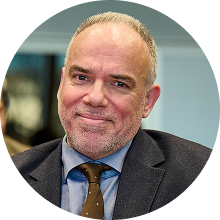
Dimitris P. Sotiropoulos was born in Athens, 1972 and is a professor of Contemporary Political History at the University of Peloponnese. Since 2023, he is the President of the General State Archives of Greece as well as the Chair of the Governing Board of the Observatory on History Teaching in Europe (OHTE), Council of Europe. He is also a member of the NEW HESTIA’s journal editorial team and has been a regular columnist of several Greek newspapers and magazines. Selected publications: (with Ev. Hatzivasiliou), Twisted track. Politics and culture in Greece, 1960-1974, Metehmio pbl, Athens 2024, Phases and Contradictions of the Greek State in the 20th Century, 1910-2001, Hestia pbl, Athens 2019, From the ’60s to PASOK government, KATHIMERINI editions, Athens 2019, P. Panagiotopoulos – D.P. Sotiropoulos (eds), Political and Cultural Aspects of Greek Exoticism, Palgrave-Macmillan, 2019.
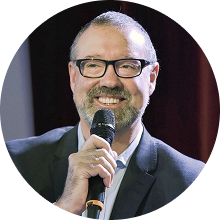
He has produced and presented TV and radio programmes for 30 years on European politics and affairs, mainly on French TV and radio (France Télévisions, France Inter), but also for international broadcasters (Euronews, TV5 Monde, ARTE, BBC). He was Programme Director for Radio France Internationale in charge of implementing the current 24 hours news format. Parallel to journalism, he has hosted over 1 500 international conferences on a wide variety of topics, especially environmental issues. He has also written a best seller on his passion, languages, of which he speaks (more or less) 7. He also once worked as a camel trainer in a circus. He tweets a lot on X as @AlexTaylorNews.

Mykola Trofymenko is the Deputy Minister of Education and Science of Ukraine.
Previously, he served as Rector of Mariupol State University. He has played a key role in shaping higher education policy in Ukraine as Deputy Chair of the Union of Rectors of Ukraine, Member of the European Universities Association Task Force for Ukraine and Board Member of the Ministry of Education and Science of Ukraine. In addition, he was a Member of the Council of the Presidential Fund of Ukraine for the Support of Education, Science, and Sports.
Holding a Doctor of Sciences in Political Science, he has built a distinguished academic career at MSU advanced from student to professor and taking on leadership roles such as Vice-Rector and Head of the International Relations Department.
His leadership was instrumental in ensuring MSU’s resilience and digital transformation, maintaining academic continuity after the university’s relocation to Kyiv. He has also participated in high-level international initiatives, including the Hubert H. Humphrey Fellowship (USA) and collaborations with the European Public Law Organization (Greece).